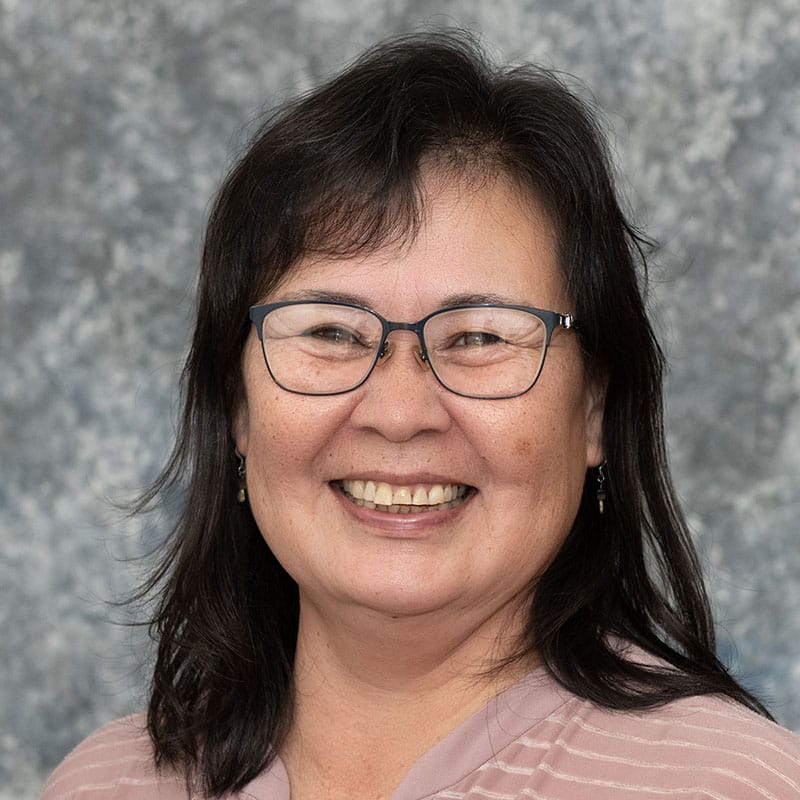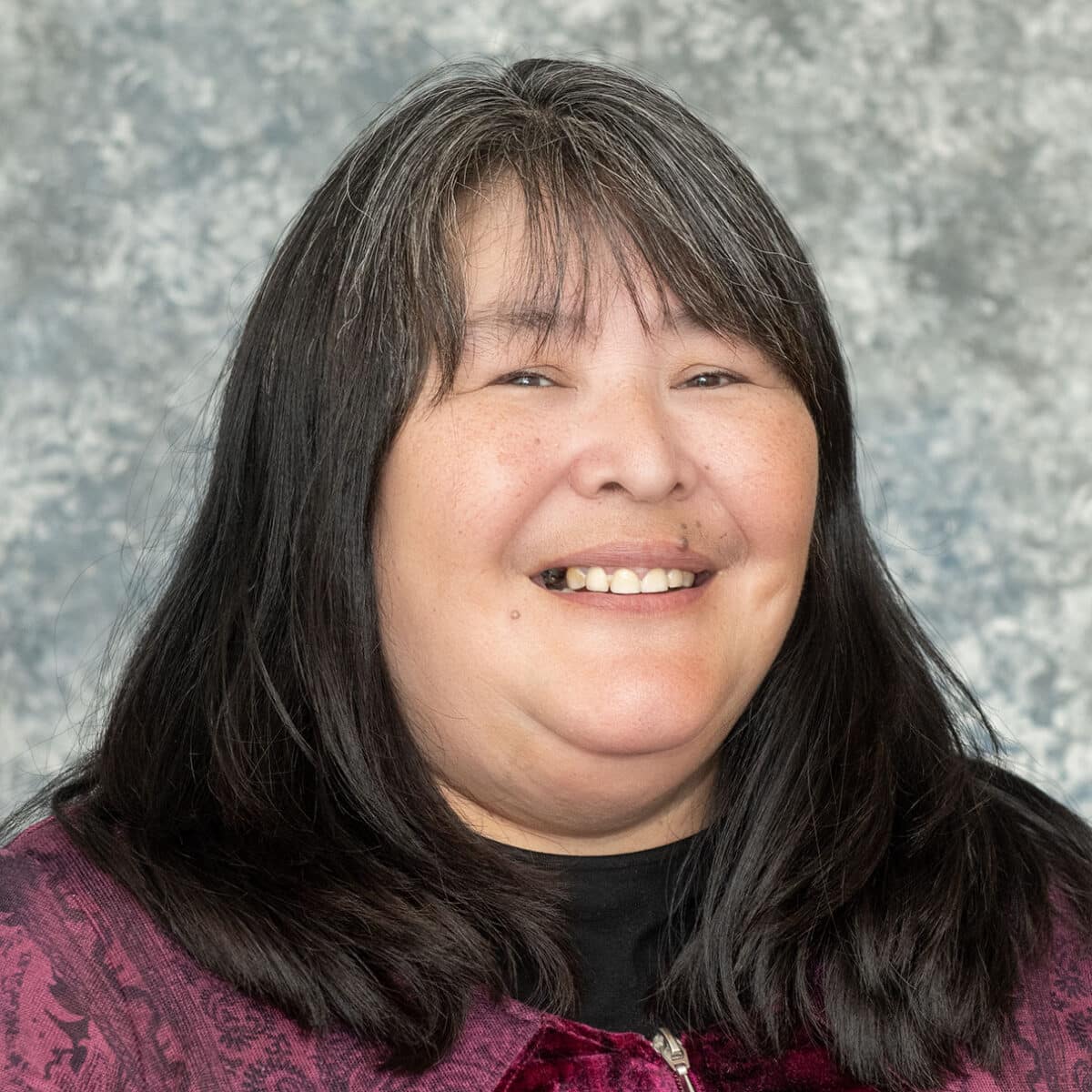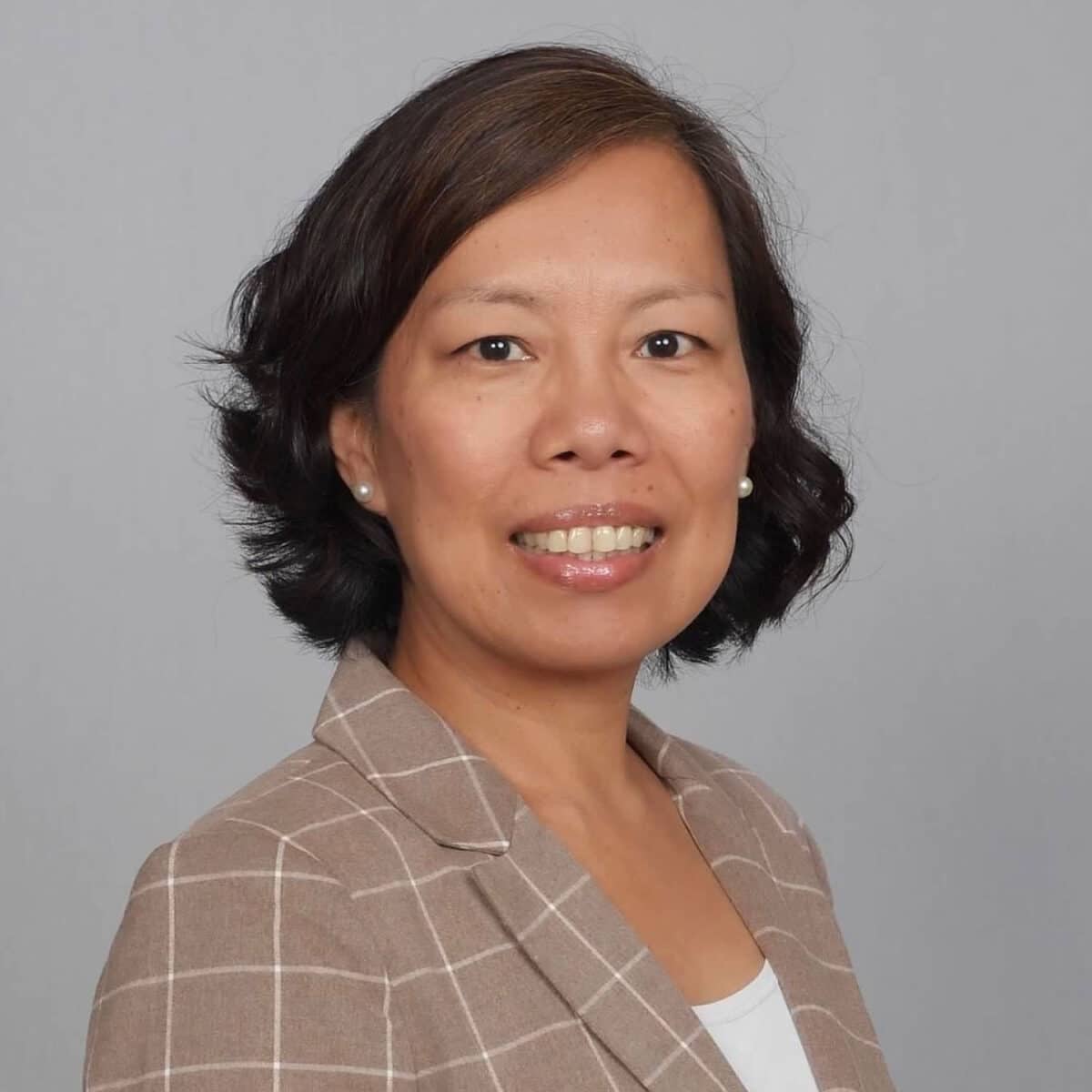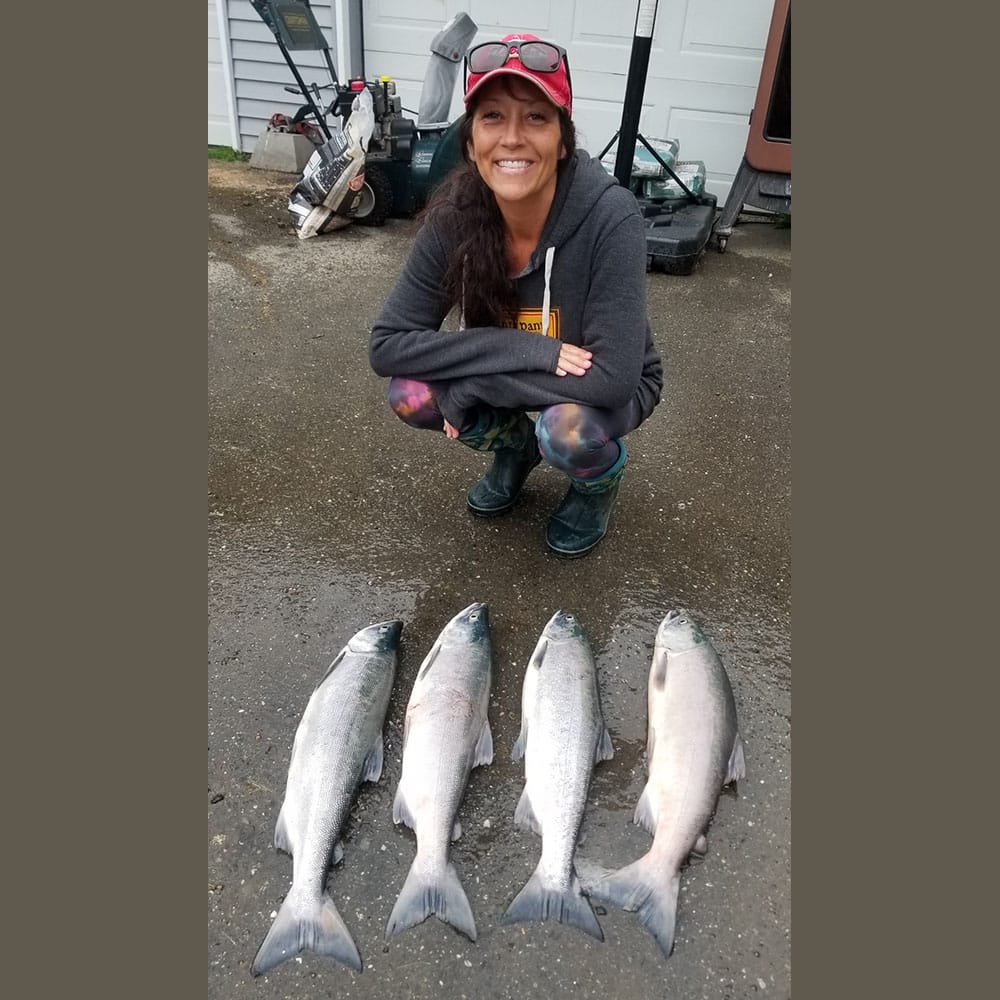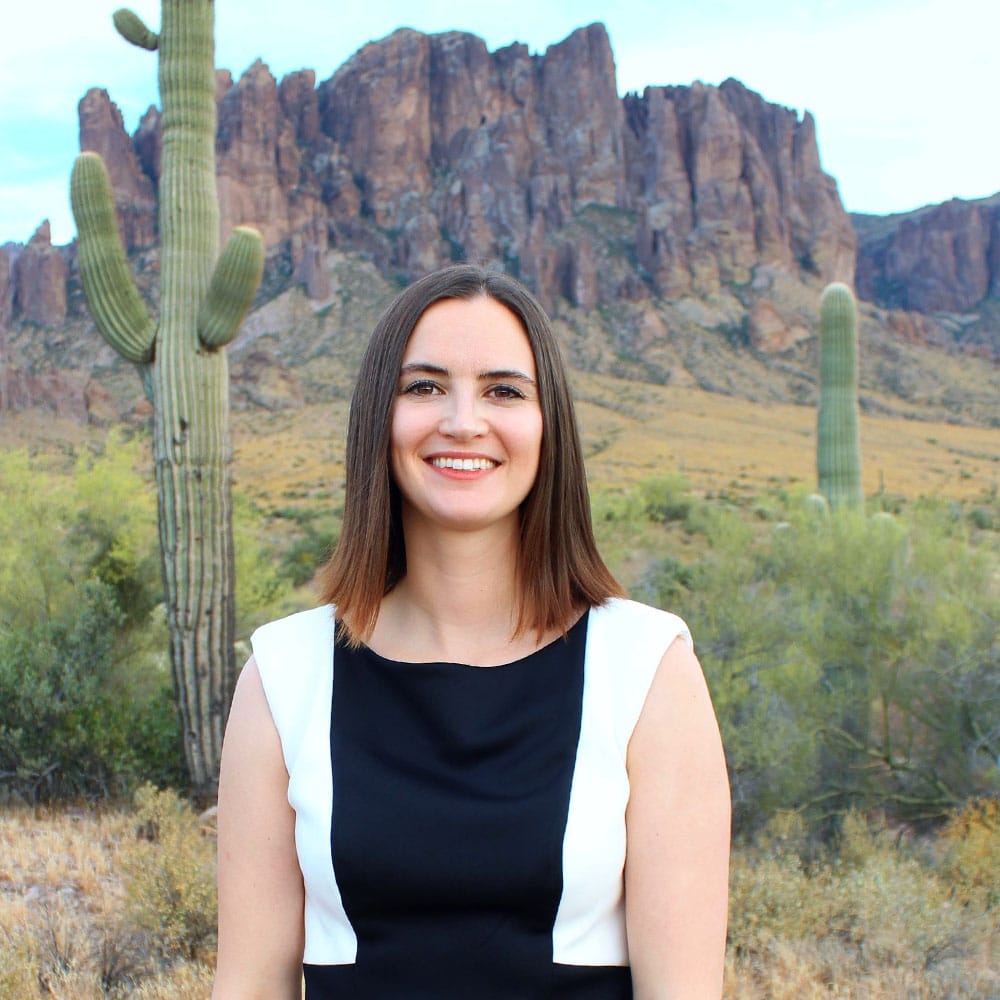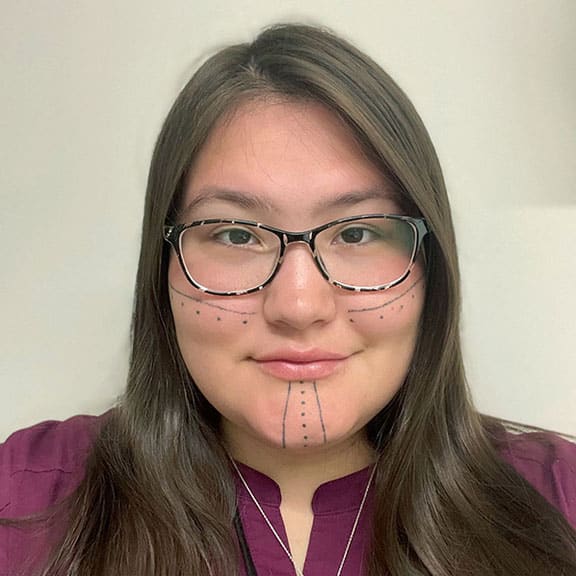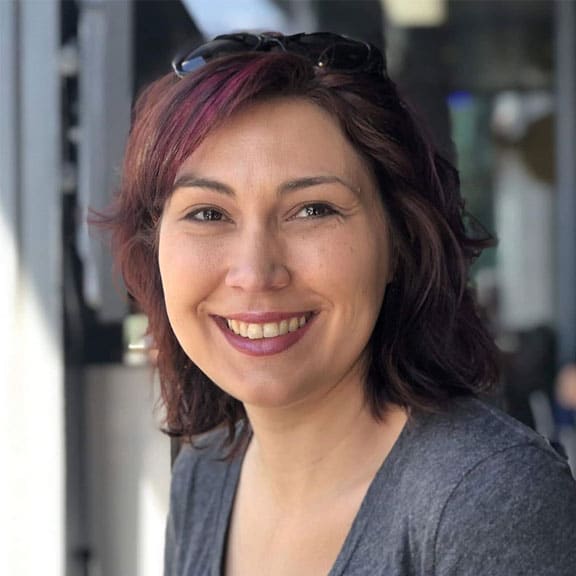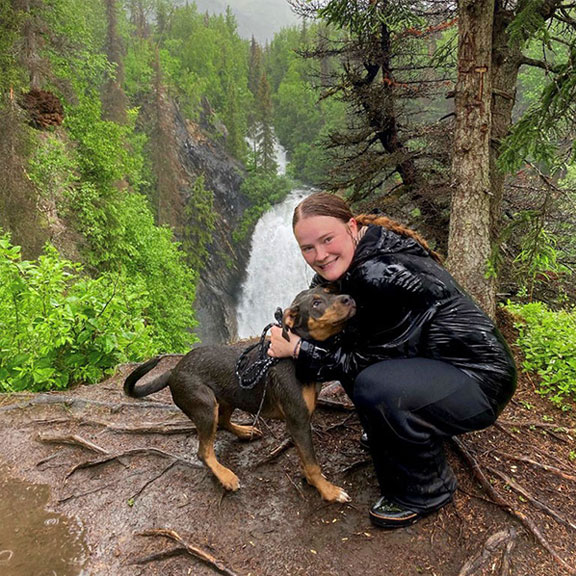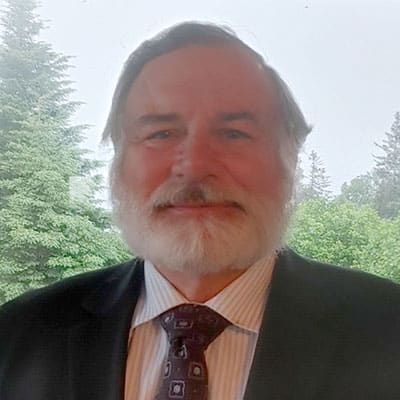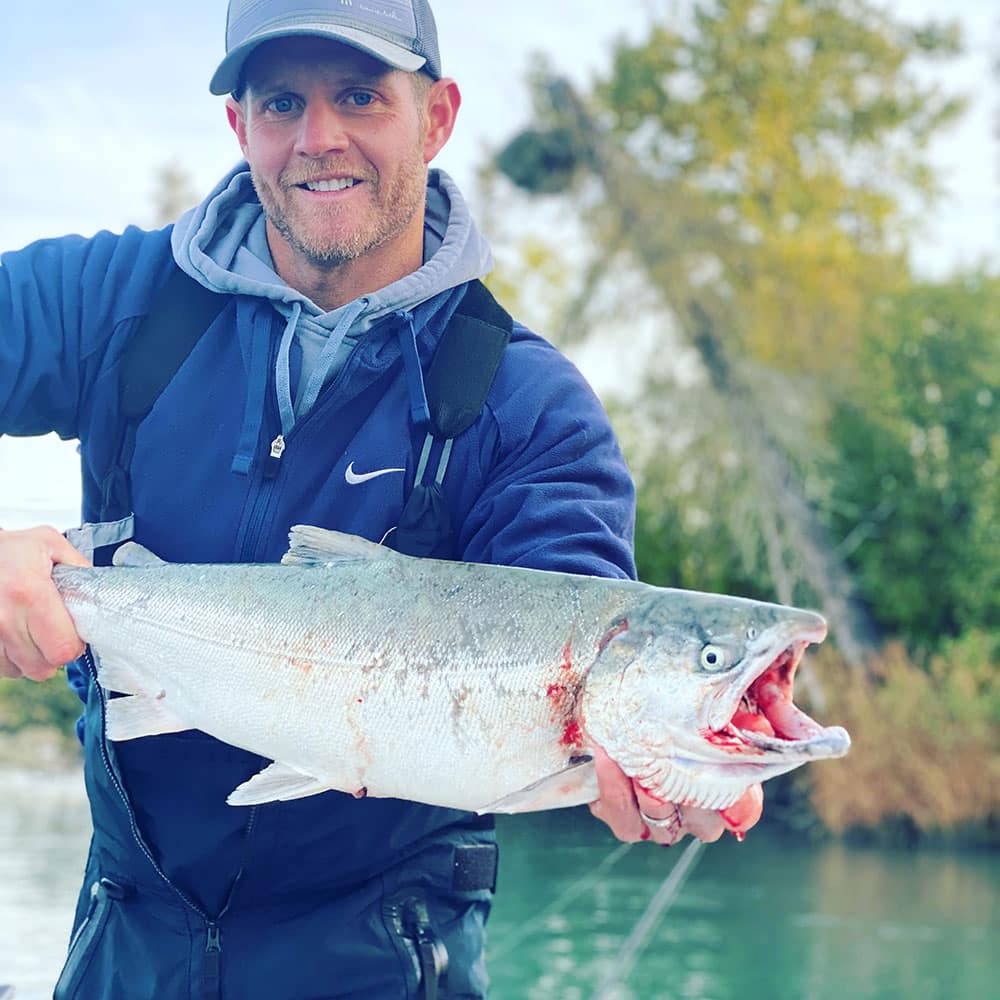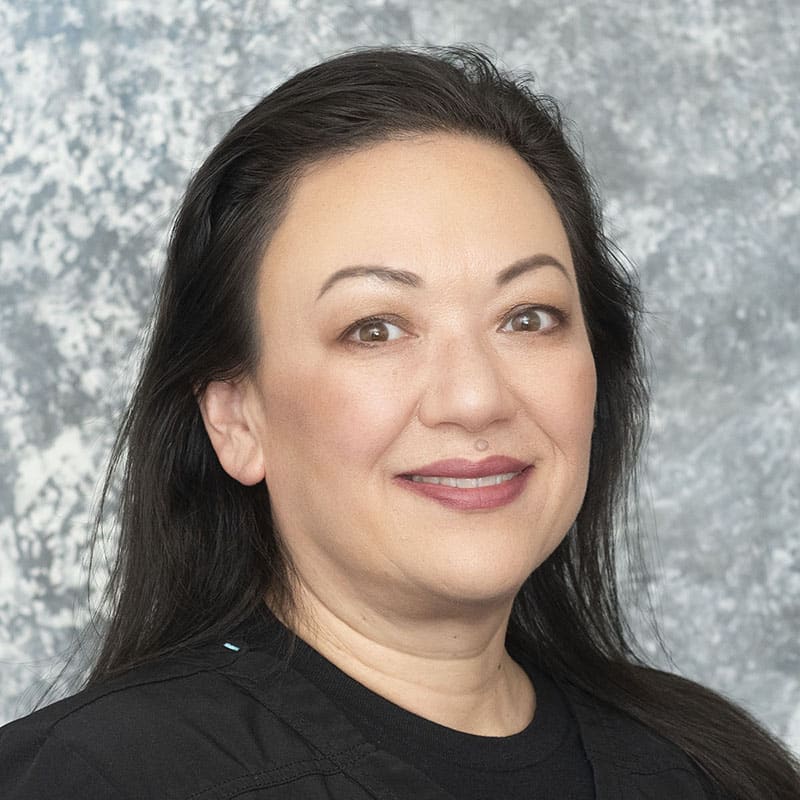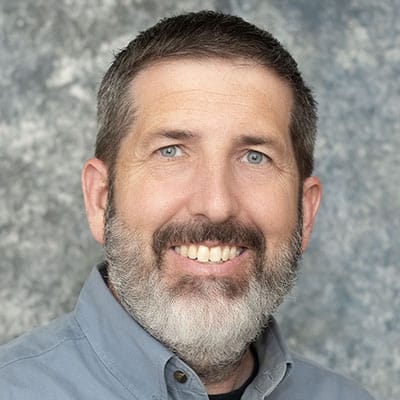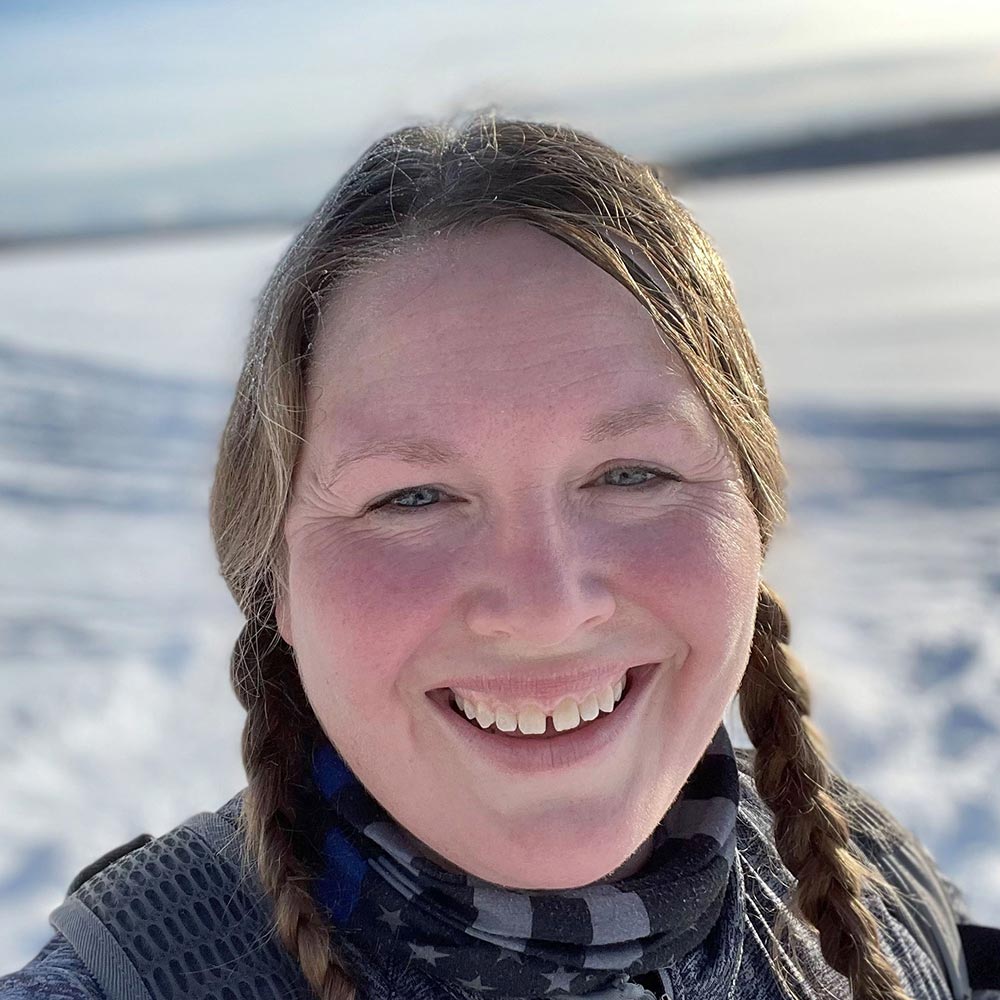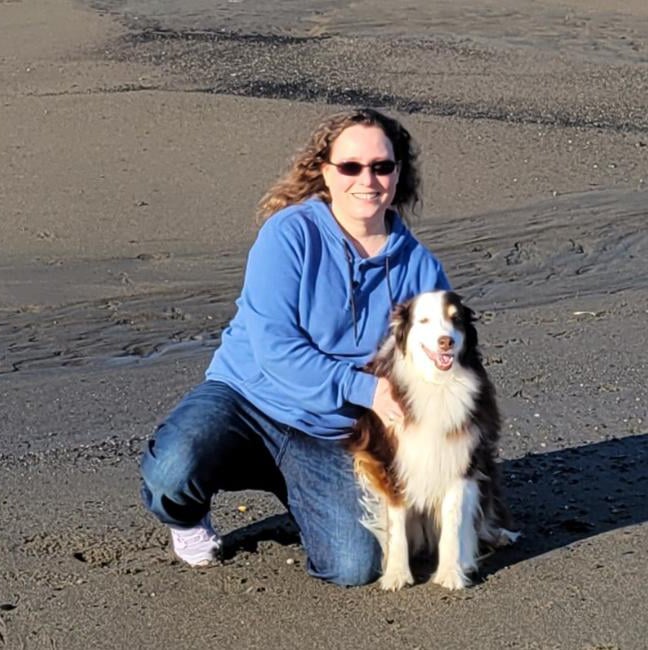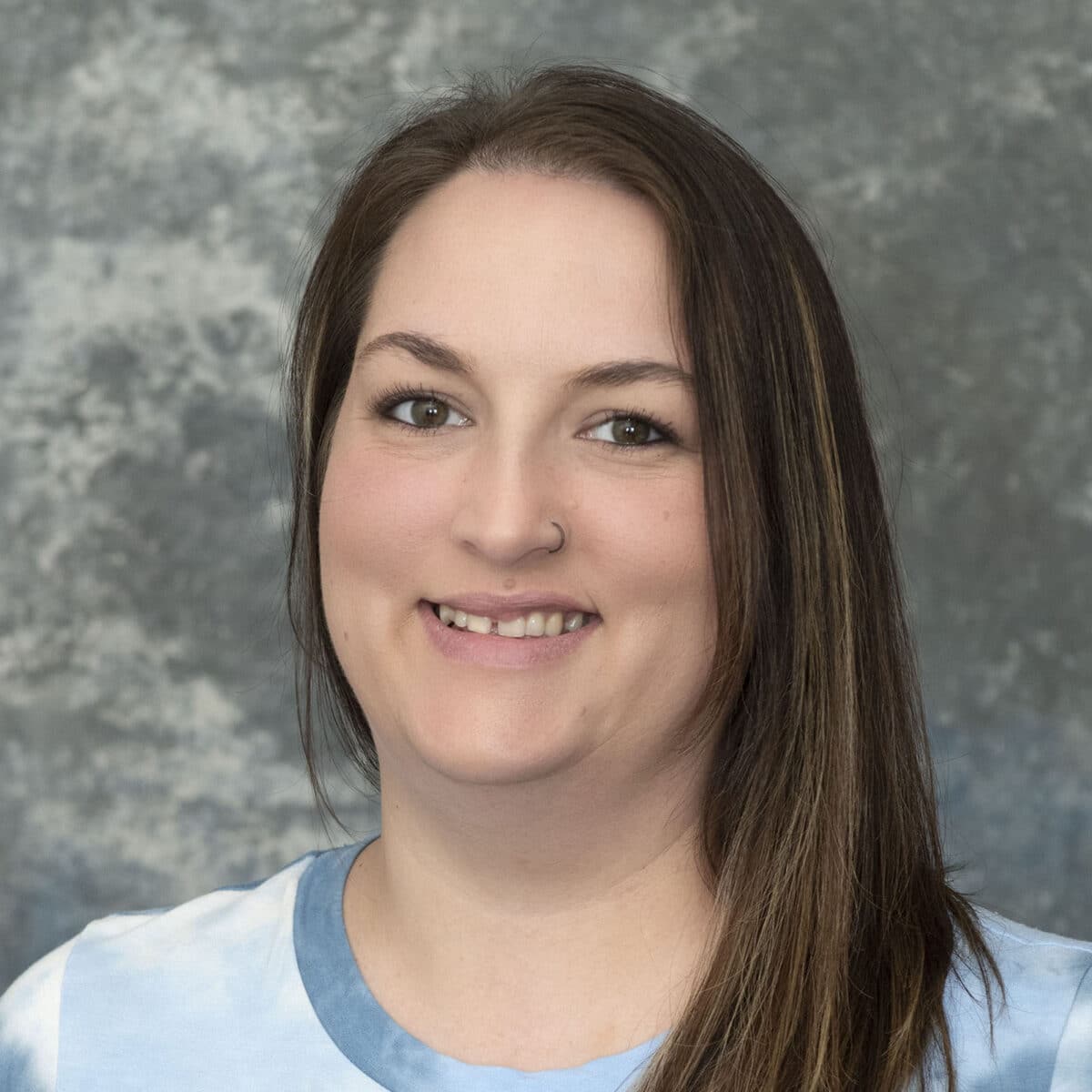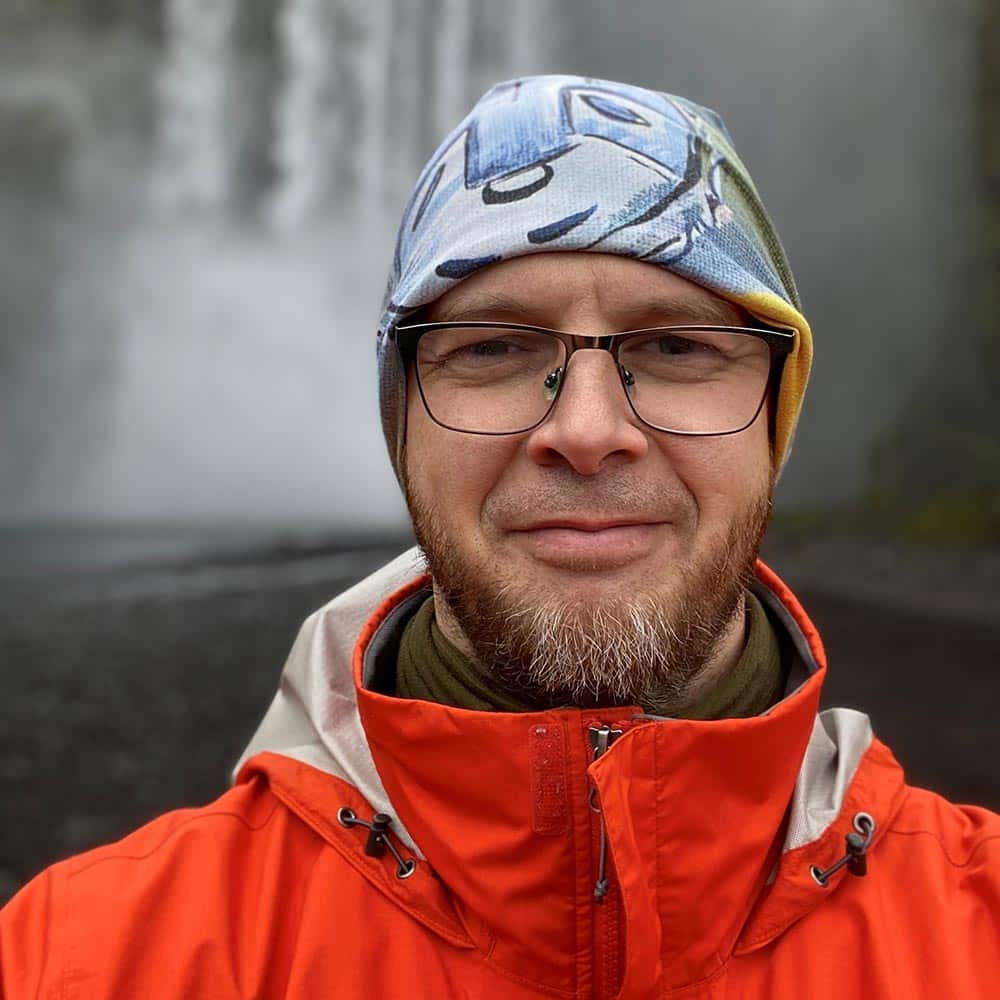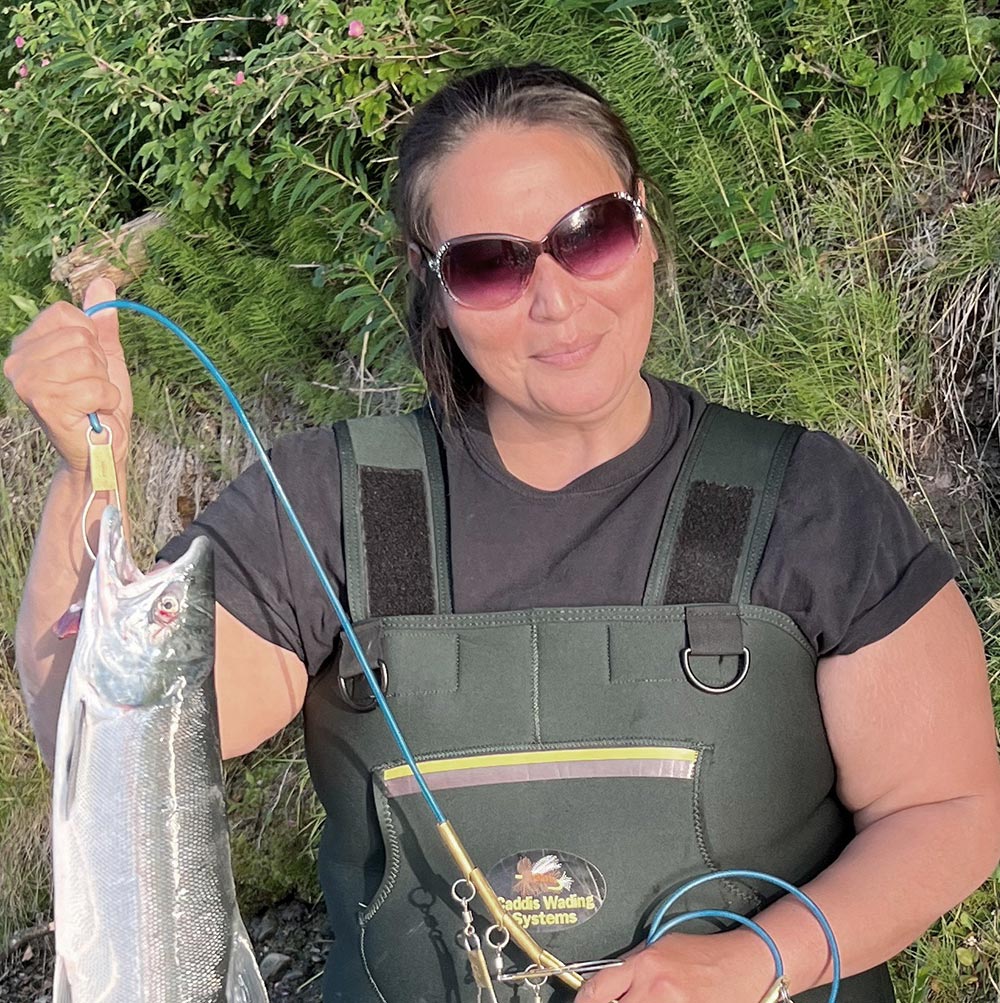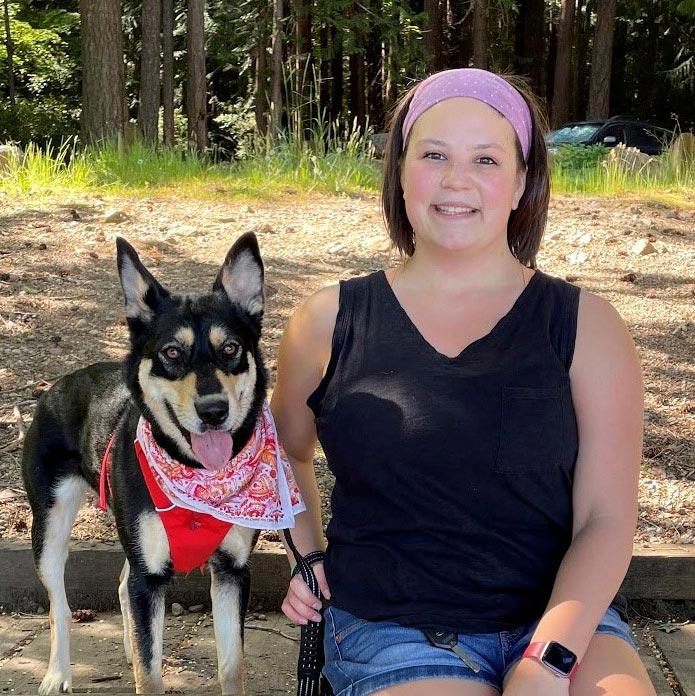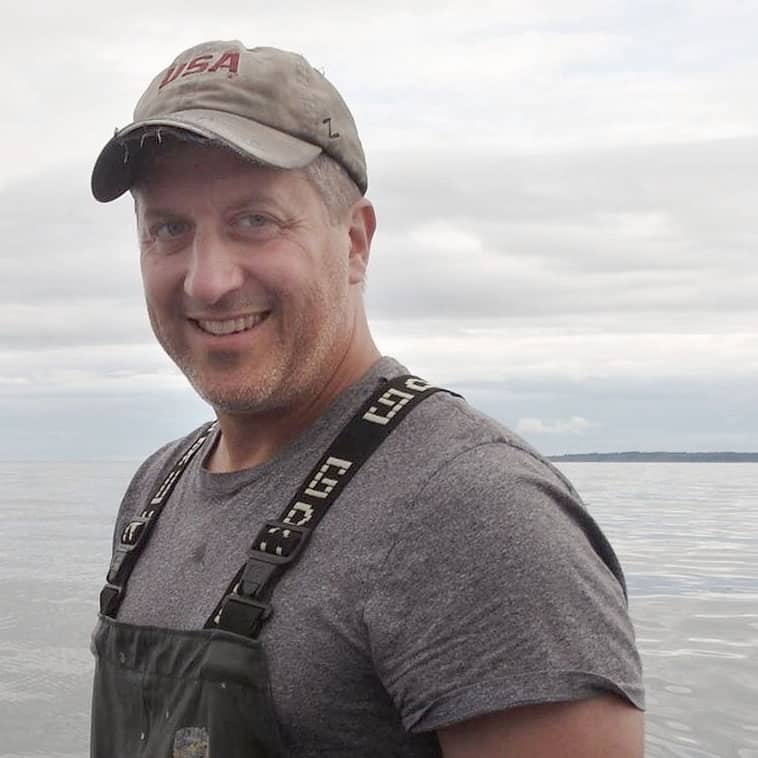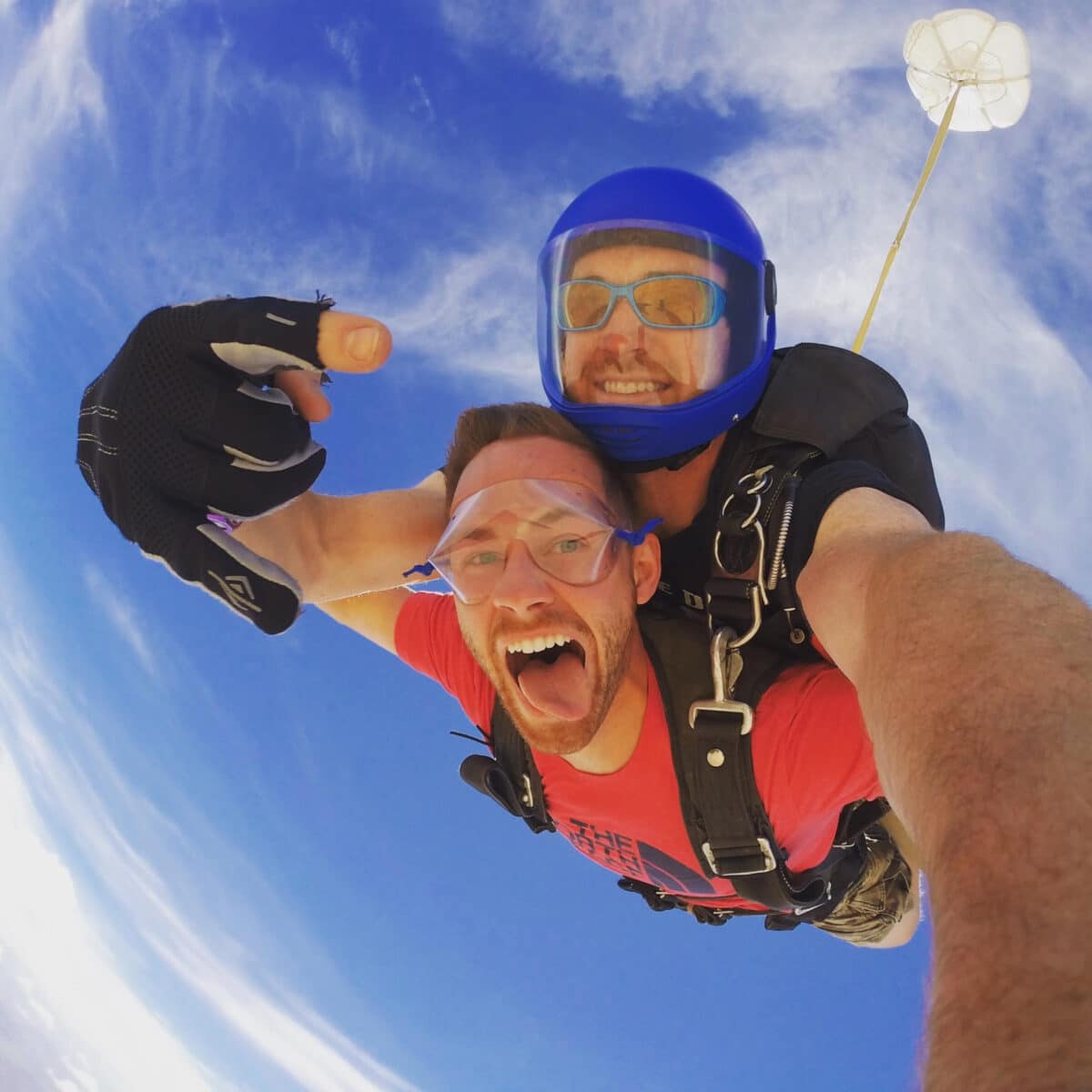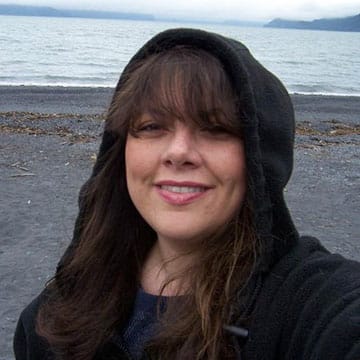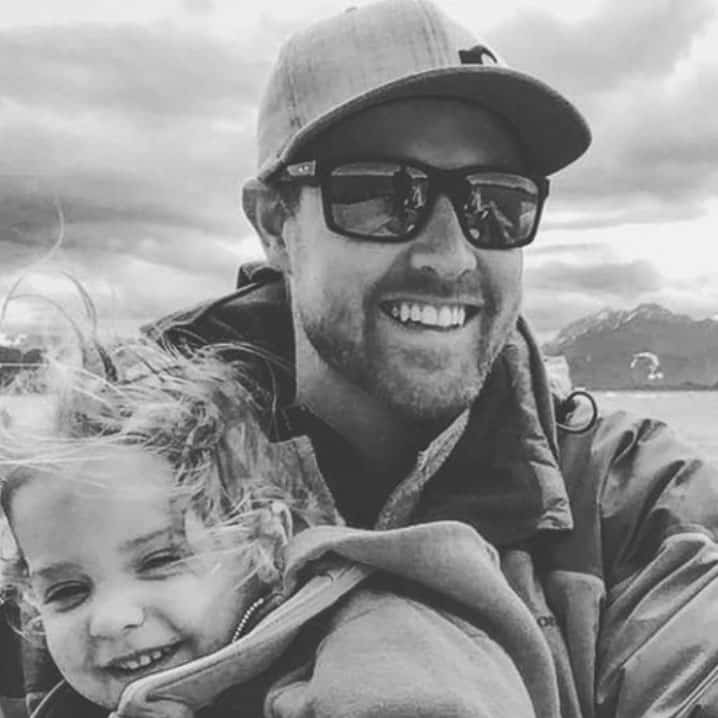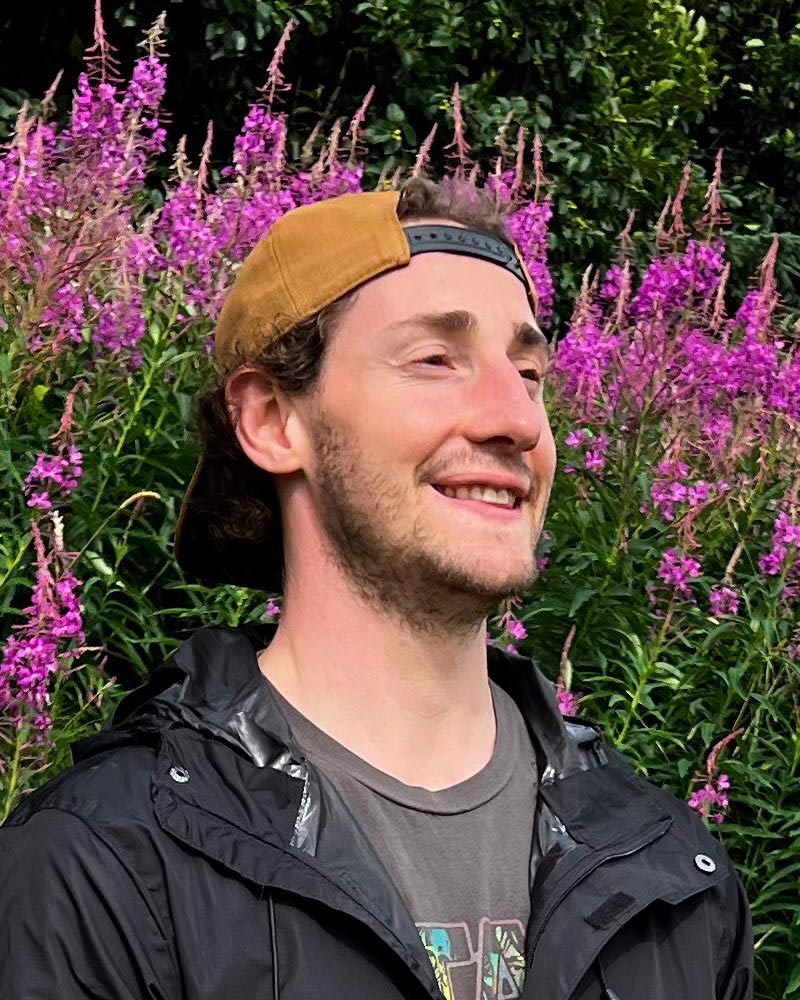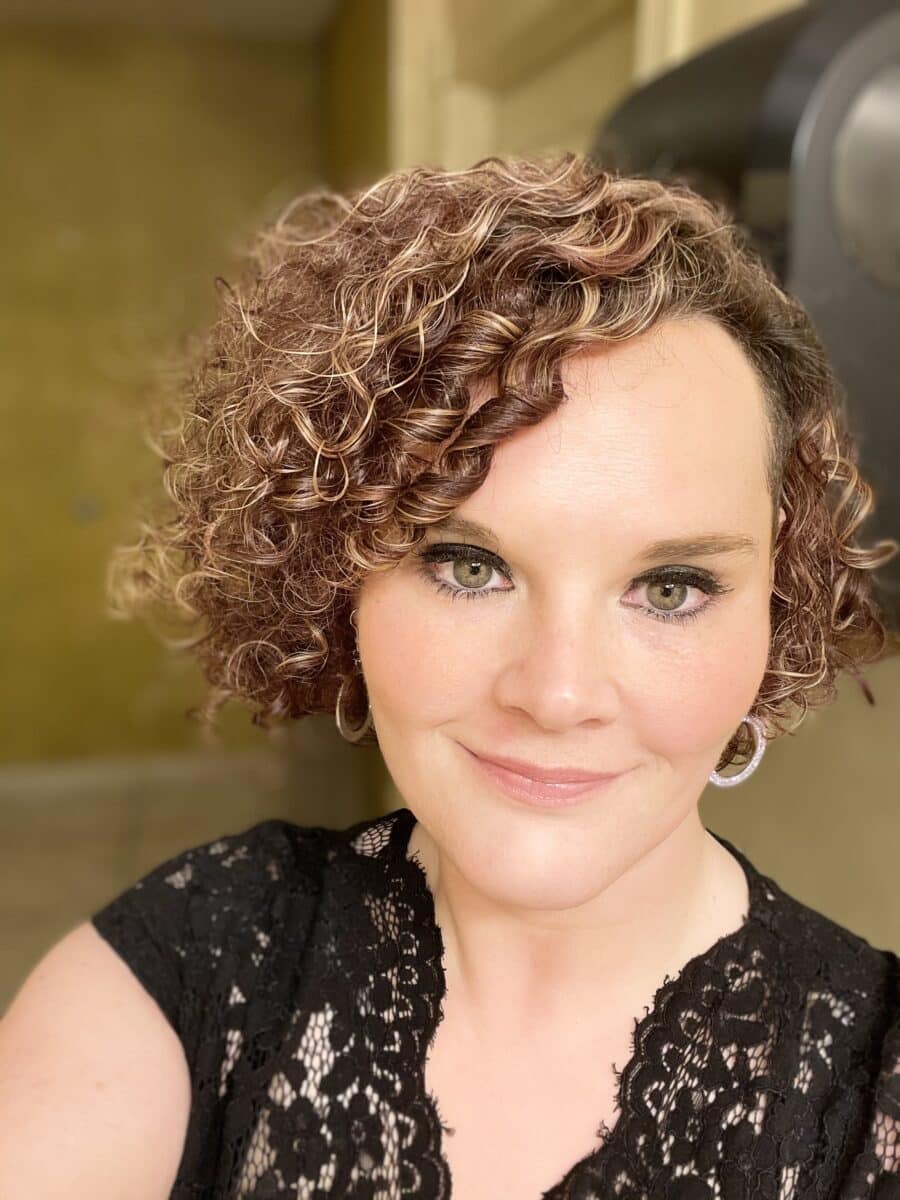Dena’ina Wellness Center hosts health fair to promote Colorectal Cancer Awareness Month
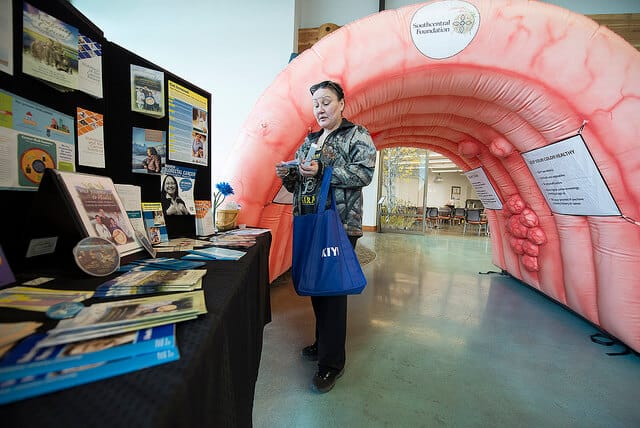
Wilma Omnik looks at educational materials during a stop at the Dena’ina Wellness Center’s health fair. She said she already saw the benefit of physical activity. “I know that if I don’t exercise I’ll be in a whole world of hurt. And we have such a beautiful facility here, why wouldn’t I?” she asked.
As Wilma Omnik stood beside a row of health displays, she thought of her family.
“I don’t think there’s been a death in my family, on my mom’s side, from anything but cancer,” Omnik said.
Omnik was among those who attended a health fair at the Dena’ina Wellness Center in March, which was Colorectal Cancer Awareness Month in Alaska. Southcentral Foundation and Alaska Native Tribal Health Consortium representatives joined tribal staff during the event, providing information about colorectal cancer and emphasizing the importance of screening and early detection. The fair also included an appearance by “Nolan the Colon,” a large, inflatable replica of a colon, along with informational booths about nicotine use, sugar consumption, heart health and more.
Colorectal cancer is the leading cause of new cancer cases among Alaska Native people, according to the Alaska Colorectal Cancer Partnership, meaning it’s important to get screened. Representatives at the health fair said Alaska Native people, or those with a family history of colorectal cancer, should begin screening at age 40. For others, screening typically begins at age 50.
For Omnik, who is from Point Hope but currently lives in Soldotna, the event reminded her of her family’s struggles with cancer. It also reminded her of the things she can do to boost her own health.
Although she admits to smoking cigarettes, Omnik said she exercises at the wellness center a few times a week and is working on maintaining a healthy lifestyle.
“I think this is an excellent opportunity to help people,” Omnik said. “I think this is awesome. It’s nice to see everything here.”
Part of what makes colorectal cancer dangerous, staff said during the event, is oftentimes there are no symptoms. However, the disease is highly treatable if discovered early. That’s why it’s crucial to be screened – which means receiving a colonoscopy – at an appropriate age.
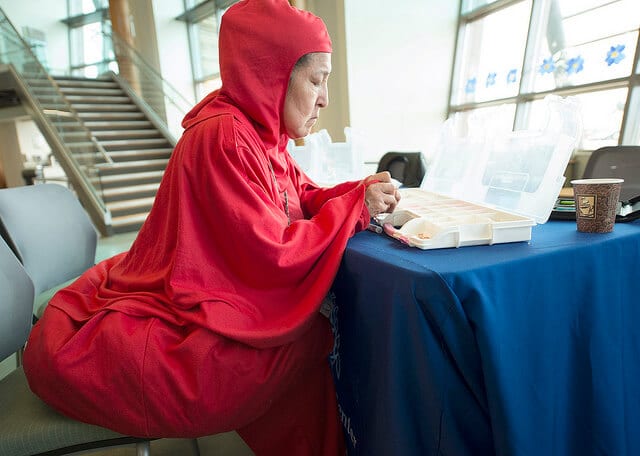
Wellness Assistant Bessie Phillip, dressed as a colon polyp, works on a beading project during the fair.
Wellness Director Deb Nyquist said the thought of receiving a colonoscopy makes many people uncomfortable despite the fact that the pre-procedure process is more taxing than the procedure itself.
“The preparation is the hardest part,” Nyquist said.
Charlene Bortz, a Southcentral Foundation employee who attended the fair and works with patients, also said screening is critical – and can be life-changing.
“We get feedback from people saying that if they hadn’t gotten screened they wouldn’t be here,” Bortz said. “We get some amazing stories.”
Tanya Kashevarof, also of the Southcentral Foundation, attended to educate people about the harmful effects of nicotine. She said nicotine effects not just one but many parts of the body, including the colon.
A former smoker, Kashevarof understands it’s difficult to quit and that it can take multiple attempts. But it’s worth the effort.
“Once you put that cigarette out, the healing begins,” Kashevarof said.
To help support Colon Cancer Awareness Month, the wellness center also hosted two nutrition workshops in March. Additionally, it offers tobacco cessation services and a range of fitness activities – all of which can help people avoid colorectal and other forms of cancer.
Said Omnik of the selection of services: “It’s great. This is like our own little mini Taj Mahal.”
DID YOU KNOW?
- Colorectal cancer is the leading cause of new cancer cases among Alaska Native people
- Colorectal cancer is the second-leading cause of cancer deaths among Alaska Native people
- Colorectal cancer is twice as common among those with a first-degree relative (sibling, parent or child) who has had colorectal cancer.
- Colorectal cancer often has no symptoms
*Source: Alaska Colorectal Cancer Partnership
DO YOUR PART
- Participate in 30 minutes of physical activity each day
- Avoid using tobacco
- Eat a balanced, nutritious diet
- Maintain a healthy weight
- Limit your alcohol intake
- Have recommended screening exams
*Source: Alaska Colorectal Cancer Partnership


